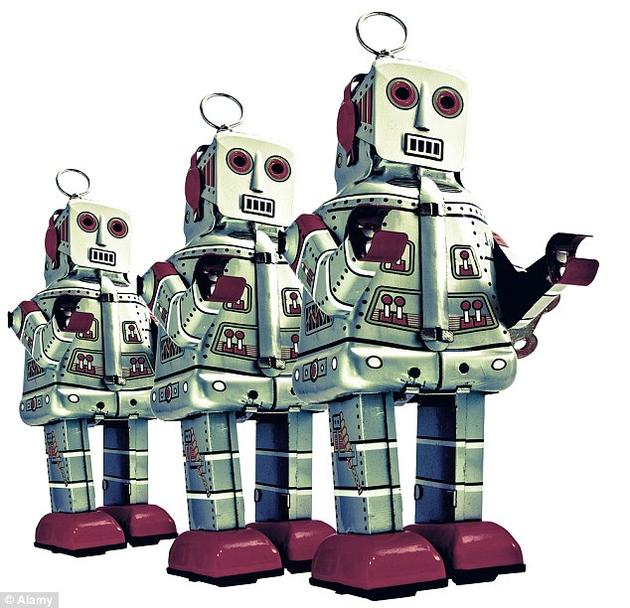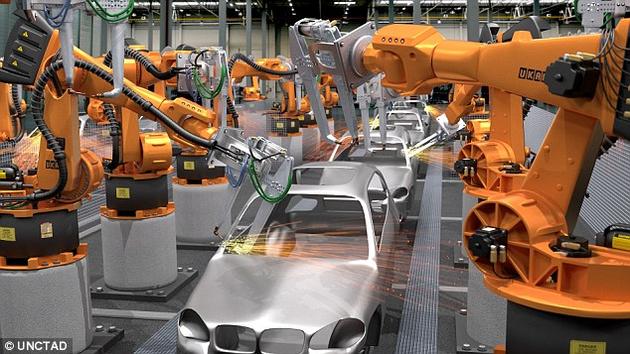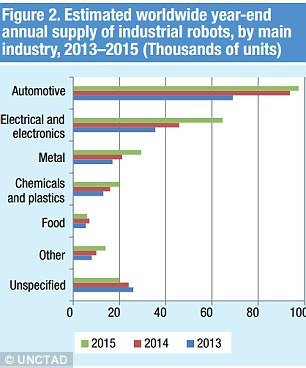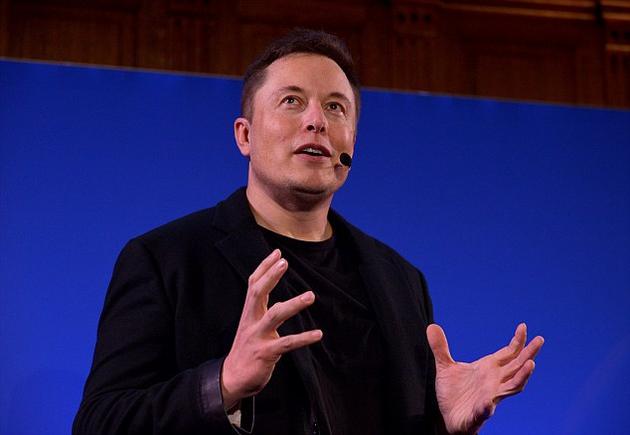Service Hotline
13751780907
13922748515

A survey of 224 startup investors attending the summit showed that 53% of respondents believed that artificial intelligence would take away up to millions of jobs, and 93% believed that the government was not ready to deal with this problem.

A recent report released by the United Nations pointed out that as developed countries begin to use robots extensively in manufacturing, developing countries will be severely impacted, and about two-thirds of their jobs will be replaced by robots.

Estimated number of robots used in major industries worldwide between 2013 and 2015 (in thousands).

Elon Musk has suggested that artificially intelligent machines could replace humans as the new workforce, requiring governments to pay citizens a flat minimum wage.
Sina Technology News, November 14, Beijing time: According to foreign media reports, a recent survey shows that investors believe artificial intelligence will inevitably eliminate millions of jobs, and governments are unprepared for such a massive impact. A survey of 224 venture capitalists participating in the global Web Summit found that 53% of respondents believe that AI will eliminate up to millions of jobs, and 93% believe that governments are unprepared to address this issue.
Web Summit, one of Europe's largest technology conferences, has been held in Dublin since its inception in 2010 and this year was held in Lisbon, Portugal for the first time. A total of 53,000 people attended the summit, and venture capitalists participating in the summit invested over $100 billion (approximately 680 billion RMB).
Many low-skilled jobs have already disappeared in developed countries, and in developing countries, automation and the reshoring of foreign companies are causing even greater losses. The report points out that in some job sectors, the value of manual labor will be significantly reduced due to robots being able to "highly replace" human workers, leading to many people facing unemployment. "Increased robot use in developed countries will reduce the labor advantage of developing countries," the report states.
"In developing countries, automation is actually affecting more industries than in developed countries (many of these jobs no longer exist in developed countries), affecting two-thirds of all industries." Automation may cause developing countries to focus more on jobs that robots are not yet capable of, such as garment manufacturing. "In many labor-intensive industries like garment manufacturing, large-scale automation is not yet feasible. Although the cost of robots is decreasing, some developing countries still have a large supply of low-cost labor. Therefore, in countries that need to create jobs for a large number of low-skilled workers (such as many in Africa), using robots may actually increase production costs under the current cost structure."
Just a few days ago, Tesla CEO Elon Musk pointed out that artificially intelligent machines may replace humans as the new labor force, and governments will need to pay a flat minimum wage to the people. As automation becomes the norm in the future, there may be fewer jobs available for humans, allowing people to have more leisure time and enjoy life better.
Musk said that to adapt to this evolving world, humans will eventually develop a symbiotic relationship with "digital superintelligent" robots. However, he warned that this will be a significant challenge, as some jobs, such as truck driving, may soon be replaced by automated technology. As humans are replaced by machines, their incomes will also change. Perhaps governments will need to establish a unified income standard. "It's very likely that we'll all end up with a global base salary because of automation," Musk said.
Musk also explained that some people may want to do more "complex" and "interesting" work in the future. People will also have more leisure time. "We have to think carefully about how to best adapt to a world with advanced artificial intelligence," Musk said, adding that this is the hardest part. "We will ultimately need to develop some level of symbiosis with digital superintelligence."